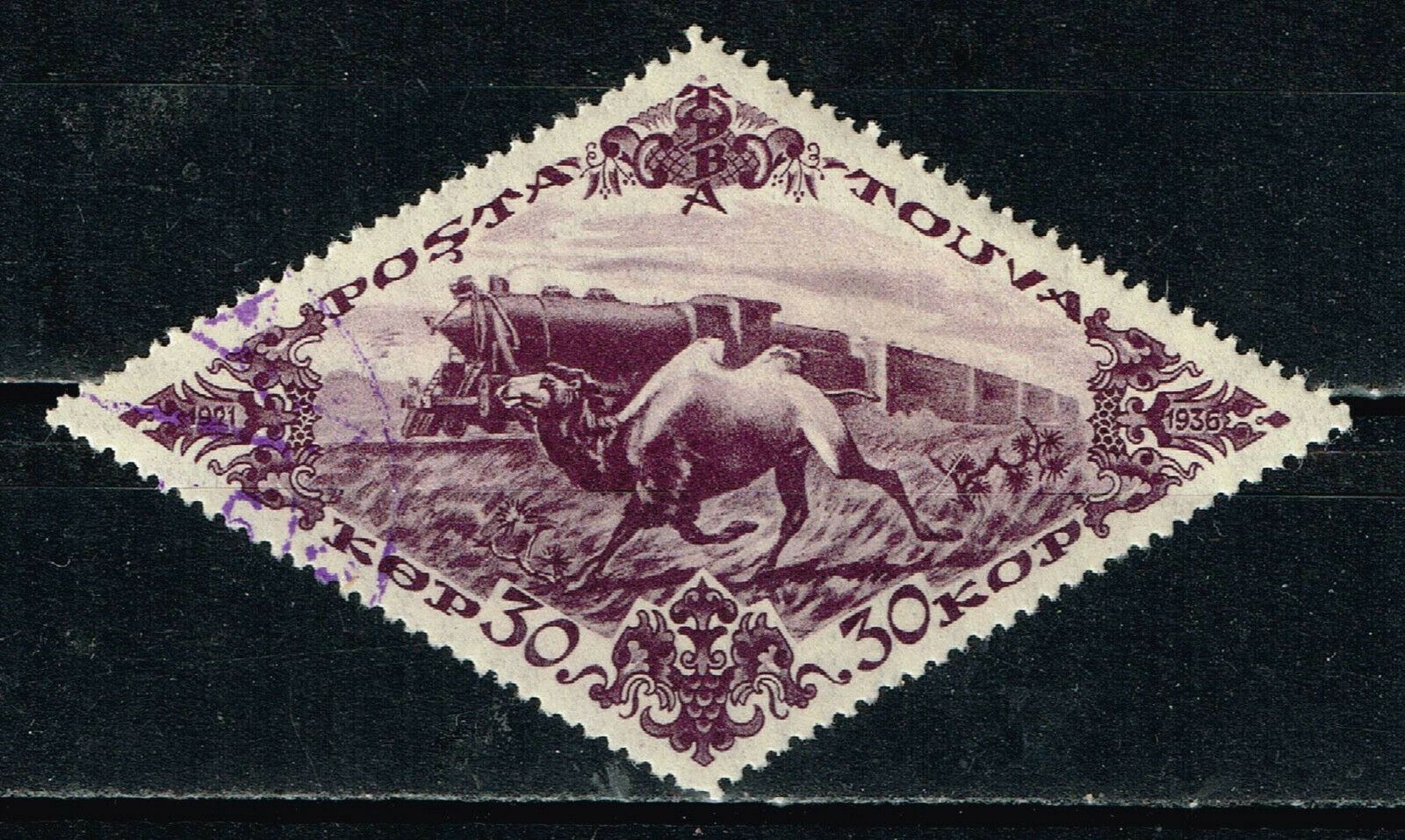-40%
Touva Railroad Trane Locomotive Race with Camel stamp 1936 A-11
$ 7.91
- Description
- Size Guide
Description
Very nice rare original stamp.The
Tuva
Republic is a federal subject of Russia . It lies in the geographical center of Asia, in southern Siberia. Population: 307,925 (2010 Census preliminary results). Forests, mountains, and steppe make up a large part of the geography. Following the Russian Revolution of 1917 which ended the imperial autocracy, most of Tuva was occupied from 5 July 1918 to 15 July 1919 by Aleksandr Kolchak's "White" Russian troops. Pyotr Ivanovich Turchaninov was named governor of the territory. In the autumn of 1918 the southwestern part was occupied by Chinese troops and the southern part by Mongol troops led by Khatanbaatar Magsarjav. From July 1919 to February 1920 the communist Red Army controlled Tuva, but from 19 February 1920 to June 1921 it was occupied by China (governor was Yan Shichao [traditional, Wade-Giles transliteration: Yan Shi-chao]). On August 14, 1921 the Bolsheviks (supported by Russia) established a Tuvan People's Republic, popularly called Tannu-Tuva. In 1926, the capital (Belotsarsk; Khem-Beldyr since 1918) was renamed Kyzyl, meaning "Red"). Tuva was de jure an independent state between the World Wars. The Soviet Union annexed Tuva outright in 1944, with the approval of Tuva's Little Khural (parliament). The exact circumstances surrounding Tannu-Tuva's incorporation into the USSR in 1944 remain obscure. Salchak Toka, the leader of Tuvan communists, was given the title of First Secretary of the Tuvan Communist Party, and became the de-facto ruler of Tuva until his death in 1973. Tuva was made the Tuvan Autonomous Oblast and then became the Tuva ASSR on October 10, 1961. The Soviet Union kept Tuva closed to the outside world for nearly fifty years.









